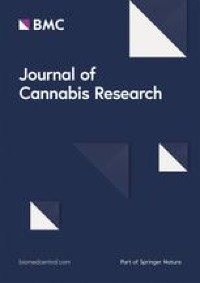Key Takeaways:
- The implementation of medicinal cannabis regulation in Uruguay faces three main challenges: timid development of the industry, lack of accessibility for patients, and the emergence of an unregulated market.
- The medicinal cannabis industry has shown slow progress, with limited licenses granted for industrialization activities.
- Patient accessibility to cannabis-based drugs in the legal market is limited and expensive, with a narrow range of available products and high prices.
- An unregulated market has emerged due to the lack of affordable legal options, leading to the production and commercialization of cannabis products by informal producers.
The Industry: Timid Development
The medicinal cannabis industry in Uruguay has experienced slow progress. While the number of licenses for productive activities has increased since 2017, the industry still faces challenges. Many of the licenses granted by the Institute for the Regulation and Control of Cannabis (IRCCA) are not related to medicinal products. The growth of the industry has been limited, but there has been recent significant growth as the new national government recognizes its potential for economic development.
However, the process of obtaining a license for productive activities is complex, as it involves multiple agencies and permits. Differences in views and procedures between institutions, such as the Ministry of Public Health (MSP) and the Ministry of Livestock, Agriculture, and Fisheries (MGAP), have created tensions that hinder industry growth.
Recent political decisions have attempted to address these tensions by introducing new regulations that promote the sector and facilitate exportation of cannabis products.
Accessibility: Limited and Expensive Supply
The limited development of the industry has resulted in a lack of accessibility to cannabis-based drugs for patients. Currently, the legal market in Uruguay offers only three authorized drugs for specific medical conditions, primarily treatment-resistant epilepsy in children. This leaves out adults and patients with other medical conditions.
Furthermore, the legal market only offers CBD-based products, as the regulation restricts the commercialization of cannabis products with high THC concentrations. The high prices of these products make them unaffordable for many patients.
Alternative paths, such as importing non-regulated products, are available but come with their own challenges and costs.
The inclusion of cannabis-based products in the national list of approved drugs and the development of magistral preparations are potential solutions to improve accessibility, but these measures have not been fully implemented.
Informal Producers: The Unregulated Alternative
In response to the limited and expensive legal options, a growing informal sector has emerged, consisting of individual small-scale producers and civil associations. These producers operate outside the legal framework but provide products to patients in need.
Although the 2020 law aims to provide a legal framework for these informal producers, the implementation process has been slow and has not yet been fully realized. Becoming a legal alternative would require professionalization and compliance with regulations, which may be challenging for some producers.
An unregulated market has also emerged, with unauthorized sellers offering low-quality products. The legalization of the industry would help ensure the quality and safety of products available to patients.
Moving Forward: Overcoming Challenges and Expanding Opportunities
Uruguay’s medicinal cannabis industry faces obstacles, but there are ways to overcome them. To foster industry growth, institutions must collaborate and streamline procedures. Expanding the range of available cannabis-based drugs will benefit patients with diverse conditions.
Improving accessibility requires affordable pricing and facilitating the importation of regulated products. Addressing the informal sector means supporting producers to transition into the legal framework while enforcing regulations against unauthorized sellers.
By tackling these challenges, Uruguay can become a leader in the medicinal cannabis industry, benefiting patients and driving economic growth.


